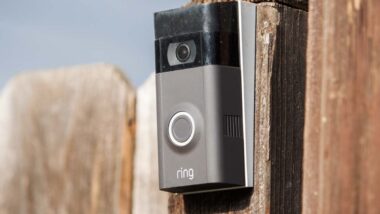
Amazon class action lawsuit overview:
- Who: Plaintiff Lisa Johnson filed a class action lawsuit against Amazon.com Services.
- Why: Johnson claims Amazon used facial recognition software for its timecards, retaining the biometric information without proper authorization or a schedule for destruction of the biometric identifiers.
- Where: The Amazon worker lawsuit was filed in federal court in Illinois.
A new Amazon worker lawsuit claims the company collected facial recognition data from employees for timecard purposes, retained the biometric identifier and shared it with third parties against Illinois law.
Illinois’ Biometric Information Privacy Act (BIPA) requires businesses to inform customers of what biometric identifiers are collected, the purpose of the collection and the length of time they will store the information. The law also requires businesses to receive written consent to collect the identifiers.
“Amazon.com Services utilizes numerous third party ‘service providers,’ all of which have had plaintiff’s biometric information disclosed, redisclosed or otherwise disseminated to them via their role as service providers assisting Amazon.com Services with its identity verification services,” the Amazon class action lawsuit says.
BIPA was intended to assuage identity theft risks that stem from biometric information stored by companies. The plaintiffs in the Amazon class action claim the company’s data collection leads to serious and irreversible privacy risks.
Proposed class includes workers with data collected over past 5 years
The proposed Amazon worker lawsuit class includes all Illinois workers whose facial information was collected by the company over the past five years.
Amazon made no mention of biometric information collection at the time of employment, the Amazon class action says.
“Plaintiff was simply instructed to input and allow her facial geometry to be scanned as part of her overall onboarding and continual timesheet verification for Amazon.com Services,” the lawsuit says.
Amazon is facing a different class action lawsuit from workers who believe the company should have paid them an additional $50 per month for working from home between December 2020 to February 2022.
Has your employer used facial recognition timecards? Let us know in the comments.
The plaintiff is represented by Michael L. Fradin of Fradin Law and James L. Simon of Simon Law Co.
The Amazon class action lawsuit is Johnson, et al. v. Amazon.com Services LLC, Case No. 1:24-cv-03208, in the U.S. District Court for the Northern District of Illinois Eastern Division.
Don’t Miss Out!
Check out our list of Class Action Lawsuits and Class Action Settlements you may qualify to join!
Read About More Class Action Lawsuits & Class Action Settlements:
- Target class action alleges violation of Illinois biometric privacy law
- Buzzfeed class action alleges website installs trackers on visitors’ browsers
- Kia class action alleges automaker collects, shares driver data without consent
- AmEx class action claims company shares credit card applicant data with Facebook















2 thoughts onAmazon class action says workers’ face scans were illegally collected
Add me please
Add me please. Out of NC.